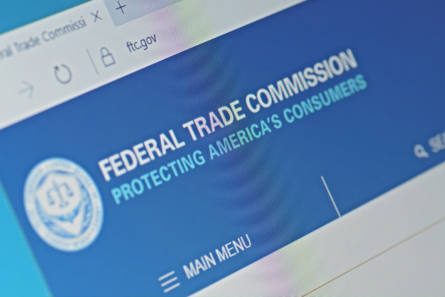The DOJ and Other Federal Agencies Oppose the FTC in FTC v. Qualcomm
Adam Mossoff

On May 21, 2019, the U.S. District Court for the Northern District of California issued a 233-page ruling in Federal Trade Commission v. Qualcomm, concluding that Qualcomm’s licensing business model of its 4G transmission technologies in mobile devices violates the antitrust laws. The district court issued a sweeping remedy, including a worldwide injunction that Qualcomm abandon its current patent licensing business model and renegotiate all existing licenses and submit to ongoing regulatory oversight by the FTC for the next seven years, among others.
Qualcomm has announced it will appeal this decision to the Ninth Circuit. In the interim, it requested a stay of the district court’s injunction pending appeal, a common practice in federal litigation. The district court denied Qualcomm’s request for a stay. Qualcomm filed an expedited appeal of the denial of a stay given the impact the district court’s injunction would have on its entire business model, and the uncertainty created in the smartphone industry generally, as the appellate process works its way through the courts.
On July 16, 2019, several amici filed briefs in support of Qualcomm’s appeal to the Ninth Circuit to reverse the district court’s denial of its request for a stay. Amici briefs were filed by Ericsson, another company that licenses digital transmission technologies in smartphones, and by the Honorable Paul Michel, former Chief Judge of the Court of Appeals for the Federal Circuit. The most surprising amicus brief, though, was filed by the Department of Justice (DOJ).
In its officially titled Statement of Interest, the DOJ heavily criticizes the district court’s decision. Among other points, the DOJ argues that the “court’s conclusion that Qualcomm acted anticompetitively is unsupported” and “ignores established antitrust principles.”
The DOJ’s filing is an unprecedented development in the history of the two agencies authorized to enforce the antitrust laws. The DOJ has never before filed a motion in an FTC lawsuit in support of the defendant. The filing last week follows the DOJ’s equally unprecedented filing in the case last May when it was still pending before the district court. At that time, the DOJ requested an opportunity to be heard in a remedy hearing given its concerns about the impact on innovation and national security that an overbroad antitrust remedy would have if the court found Qualcomm liable. The district court ignored the DOJ’s earlier filing and issued its injunctive remedies solely on the basis of the evidence submitted in the truncated liability hearings in January 2019.
In its brief in support of Qualcomm’s appeal, the DOJ points out that because of Qualcomm’s leadership in developing 5G technologies and its status as a key supplier to the U.S. government, the court’s injunction “could put our nation’s security at risk, potentially undermining U.S. leadership in 5G technology and standard-setting, which is vital to military readiness and other critical national interests.”
Unlike with the DOJ’s filing while the case was pending before the district court, the DOJ was joined last week by two other federal agencies . The first was from the Under Secretary of Defense for Acquisition and Sustainment. Ellen M. Lord, on behalf of the Department of Defense (DoD). In her statement, Under Secretary Lord explains that “DoD is seriously concerned that any detrimental impact on Qualcomm’s position as a global leader would adversely affect its ability to support national security.” She also points out that “[a] weakening of Qualcomm’s position during this critical period would leave an opening for China” and Huawei specifically, to expand their influence in the area of 5G technology.
In addition to the DoD, the Chief Information Officer, Max Everett, of the Department of Energy (DOE) filed another declaration in support of the DOJ’s brief. Mr. Everett also explained that “caus[ing] undue financial strain” to Qualcomm could “ced[e] to foreign entities, in particular China, a dominant position in the development and expansion of 5G technology.” The concerns expressed by the DOJ, DoD, and the DOE mirror the same position taken by the Committee on Foreign Investment in the United States (CFIUS) last year when it raised national security concerns in blocking Singapore-based Broadcom’s attempted acquisition of Qualcomm.
It is highly unusual for the issue of national security to be raised in an antitrust case, but three federal agencies have now directly intervened in an enforcement action brought by another federal agency in which they have explained why these concerns are relevant in this case. The DOJ, DoD, and DOE have raised concerns about an overbroad antitrust lawsuit brought by the FTC and the sweeping worldwide injunction issued by the district court.
Some commentators found the DOJ’s filing in the district court to represent merely an unseemly internecine dispute between two sister agencies with authority to enforce the antitrust laws. But now the DOJ has been joined by two other agencies in its contention that the FTC has adopted a position that is not just at odds with antitrust law, but is also at odds with the national security policies of the U.S. federal government. In its reply brief filed with the Ninth Circuit on July 18, the FTC was dismissive of the DOJ’s arguments in its Statement of Interest. This case is no longer merely a blockbuster antitrust lawsuit in the U.S. innovation economy, as it now raises a fundamental question about whether independent agencies like the FTC should be taking positions at odds with the concerns of other agencies that directly represent the interests and policies of the federal government in both innovation and national security.

Topic
Sponsor
Federalist Society’s Intellectual Property Practice Group
The Federalist Society and Regulatory Transparency Project take no position on particular legal or public policy matters. All expressions of opinion are those of the author(s). To join the debate, please email us at [email protected].




